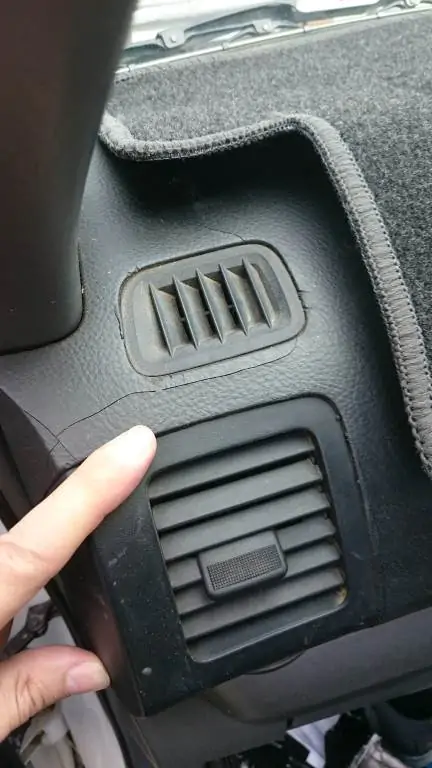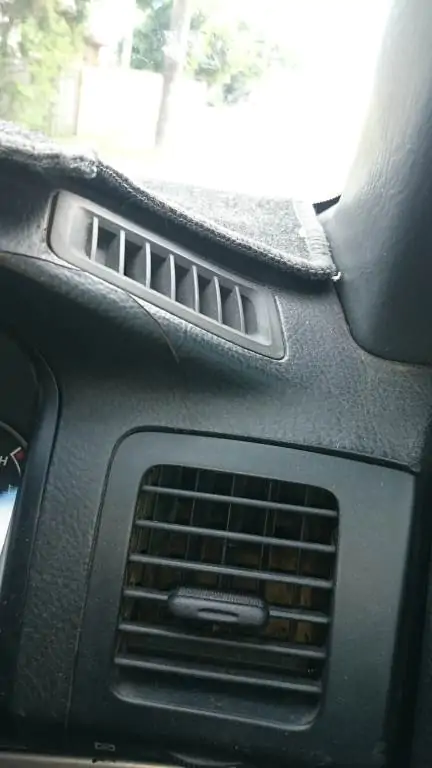Toyota Prado Problems: Common Issues and Solutions
Identify potential Toyota Prado problems – both diesel and petrol – before purchasing a used one, ensuring you avoid buying a lemon.
Toyota Prado Common Problems
In this article
Make sure you know what you’re buying and don’t just accept that every Toyota is the same – unbreakable!
Most Toyota Prados, petrol or diesel, are fundamentally sound – they go well, they are safe, durable, reliable and very profitable for the manufacturer, but they do have their common faults.
Large companies like to use these vehicles for their intended purpose. You should get a mobile pre-purchase inspection before you buy to understand the vehicle’s history. If you don’t, you could be buying an ex-mine vehicle.
Toyota Prado Diesel Engine Problems
Overview of the diesel engine problems associated with Toyota Prado vehicles.
- Diesel Particulate Filter (DPF) issues: DPF can get clogged due to insufficient regeneration. The problem leads to reduced engine performance and warning lights coming on. To avoid this occurring, drive at highway speeds to allow for proper DPF regeneration. If the problem becomes more frequent, professional cleaning or potential replacement by a qualified mechanic or Toyota dealer is needed.
- Fuel system problems, like injector failures: Injector failures can occur, causing a rough idle and decreased fuel efficiency. At times, a potential engine may misfire. For the solution, ensure proper fuel quality and consider using diesel additives to keep the fuel system clean. If injector issues worsen, repair or replacement is required.
- Engine oil leaks or consumption: Description: Engine oil leaks can develop, leading to oil stains or puddles under the vehicle. Excessive oil consumption may result in low oil levels and potential engine damage. Regularly check levels and inspect for any leaks. Address any leaks promptly by replacing gaskets, seals, or damaged components.
- Turbocharger failure: Description: Turbocharger failure can cause loss of power and excessive smoke from the exhaust. Regular servicing is a must to avoid this happening. Also, High-quality engine oil and allowing the turbocharger to cool down before shutting off the engine is recommended.
Common components that can cause engine oil leaks in Toyota Prado diesels include:
- Valve Cover Gasket: The valve cover gasket seals the top of the engine and can deteriorate over time. Leading to oil leaks around the valve cover area.
- Oil Pan Gasket: The oil pan gasket is crucial to keeping the engine’s oil pan sealed. In the event of wear or damage to this gasket, there is a risk of oil leakage from the oil pan area.
- Front/Rear Crankshaft Seal: The crankshaft seals are at the front and rear of the engine and prevent oil from leaking out around the crankshaft. If they become worn or damaged, oil can leak from these areas.
- Camshaft Seals: The camshaft seals are responsible for sealing the camshaft journals, preventing oil leaks. If they deteriorate or fail, oil can leak from the camshaft area.
- Oil Filter Housing Gasket: The oil filter housing gasket seals the connection between the oil filter housing and the engine block. A worn or damaged gasket can result in oil leaks around the oil filter housing.
Prado D4D Engine Problems
Here are some problems with the Toyota Prado’s D4D engine:
- EGR Valve* (eBay affiliate link) issues: Similar to VW Amarok problems, the Exhaust Gas Recirculation valve can become clogged or malfunction. Issues such as reduced engine power, increased emissions, and potential engine stalling can occur. To prevent regular maintenance, including cleaning or replacing the EGR valve. Along with associated components.
- Injector Seal Failures: D4D engines have experienced problems with injector seals deteriorating. Rough idling, decreased fuel efficiency, and potential engine misfires. In some D4D engines, injector seals may develop leaks, causing fuel to mix with the engine oil. As a result, the engine oil pickup gets blocked, resulting in oil starvation and potential engine damage. Check your engine oil often to see if the level has increased. You can suspect the injector seals if it has. It’s advisable to have all injector seals replaced and injectors inspected and serviced every 40,000 km.
- Carbon Buildup in Intake Manifold: Carbon deposits can accumulate in the intake manifold. The problem is worse when driving in urban areas or with frequent stop-and-go traffic. The engine performance and fuel efficiency worsen over time. A solution is to clean the intake manifold to remove carbon deposits at required servicing intervals. Consider using fuel additives or performing an intake system cleaning to clean and reduce carbon buildup. Driving at higher speeds can also help burn off carbon deposits.
- Timing Belt/Tensioner Problems: D4D engines have a timing belt system. Issues such as belt wear, tensioner failure, or misalignment result in engine damage. Follow the manufacturer’s recommended timing belt replacement intervals. Replace the timing belt, tensioner, and associated components per the maintenance schedule. Or if you see signs of wear or damage.
Toyota Prado V6 Problems
- Overheating Issues: The Toyota Prado V6 may experience overheating. Possible causes are malfunctioning thermostats, coolant leaks, or radiator problems. Check coolant levels, inspect for leaks, and ensure proper thermostat functionality. Address any cooling system issues.
- Transmission Shifting Problems: Some Prado V6 models may exhibit transmission shifting issues. A Hesitation, rough shifting, or slipping gears are possible. Solutions may include fluid flush, software updates, or component repairs/replacements.
Prado Cracked Dashboard
Cracking dashboards was a common problem, and they were replacing them under warranty, so make sure to lift the dashboard protector is fitted to the Prado you’re inspecting, as I did with this one.



Prado Back Door Problems
Another common problem is that the back door can sag up to 3mm due to the weld/seam splitting near the bottom hinge, so make sure you have a good look at the hinges and welds so you don’t have to go to the expense of getting a new door in some cases.
Important to remember before buying a car from a private seller to make sure you do a vehicle finance check. The PPSR report will also show information like WOVR status, stolen status and other important facts about the car.
Toyota Prado Boot Criticism on 250 Series
15 years have been relatively kind to the 150 series, but the 250 series breaks the mould of the Land Cruiser of the past, and the Toyota Prado boot criticism is warranted. It’s like a cheap, flimsy solution. The raised floor and plastic construction lack the robust, integrated feel expected from a Land Cruiser. You could say it’s an afterthought, which can be the case with Toyota designs, unlike the practical designs you’re used to seeing on the third and fourth-generation Mitsubishi Pajeros of the past. Despite its discontinuation, it was known for its clever and well-integrated cargo solutions. This comparison underscores the Prado’s design shortcomings.
Toyota has prioritised new technologies and platform changes, potentially at the expense of traditional Land Cruiser practicality. The emphasis on electrification and new chassis architecture has led to compromises in cargo space, a core Land Cruiser value. The 250 series is a clear departure from the rugged, simple, and practical design ethos that has been the backbone of the Land Cruiser brand.
Impact on Brand Perception
This boot design could potentially damage the Prado’s reputation in Australia, a market where practicality and reliability are highly valued. It raises questions about Toyota’s design priorities and whether they truly understand the needs of their Australian customers. This issue could cause customers to look at other brands providing better thought-out designs.
Prado’s boot design has become a symbol of a potential shift in Toyota’s design philosophy, a shift that may not resonate with its traditional customer base in Australia.
Frequently Asked Questions (FAQ)
Is the Toyota Prado reliable?
Toyota Prado is a popular SUV model from Toyota, renowned for its reliability and off-road capabilities. It has been on the market for over two decades and has become one of the most reliable cars in its class.
What years did Prado have problems?
Customers owning the Toyota 150 Land Cruiser Prado vehicles fitted with a 3.0-litre 1KD-FTV D-4D engine that complies with the Euro IV (Euro4). Customers experienced a sharp knocking sound coming from the engine, dark smoke puffing out of the exhaust or a loss in power. This was commonly due to a cracked piston. The production change saw improved injectors to prevent wrong combustion and a change of piston shape for strength.
Why is the Toyota Prado unstable?
The Prado is on a Body-On-Frame platform, which elevates it from the ground. More ground clearance makes it prone to instability, hence the reputation.
How many kilometres can a Toyota Prado last?
A Toyota Prado can last for a considerable number of kilometres when maintained. On average, a well-maintained Toyota Prado can travel over 300,000 kilometres (186,000 miles). Even reach 500,000 kilometres (310,000 miles) with regular servicing, proper care, and driving conditions. Factors such as maintenance history, driving habits, terrain, and overall care play significant roles in determining the longevity of any vehicle, including the Toyota Prado. Regular maintenance, timely repairs, and adherence to manufacturer-recommended service intervals are the keys to maximising the lifespan of your Toyota Prado.
*As an Amazon Associate and eBay Partner I earn from qualifying purchases. This post may contain affiliate links to products I recommend.
Also Please Note: The information contained on this page is for general information purposes only. All reasonable steps have been taken to ensure that this information is accurate, complete and up-to-date. Also if you believe any information we have displayed is inaccurate, please contact us immediately and we will take reasonable steps to correct it. Finally, this information is a guide only and cannot be used as a reference to the point of law.
✅ Need a Pre-Purchase Car Inspection?
Don’t risk buying a lemon. At BPC Auto Inspect, we provide detailed mobile vehicle inspections across Brisbane. Fast, thorough, and independent.
🚗 Book a Mobile Inspection







